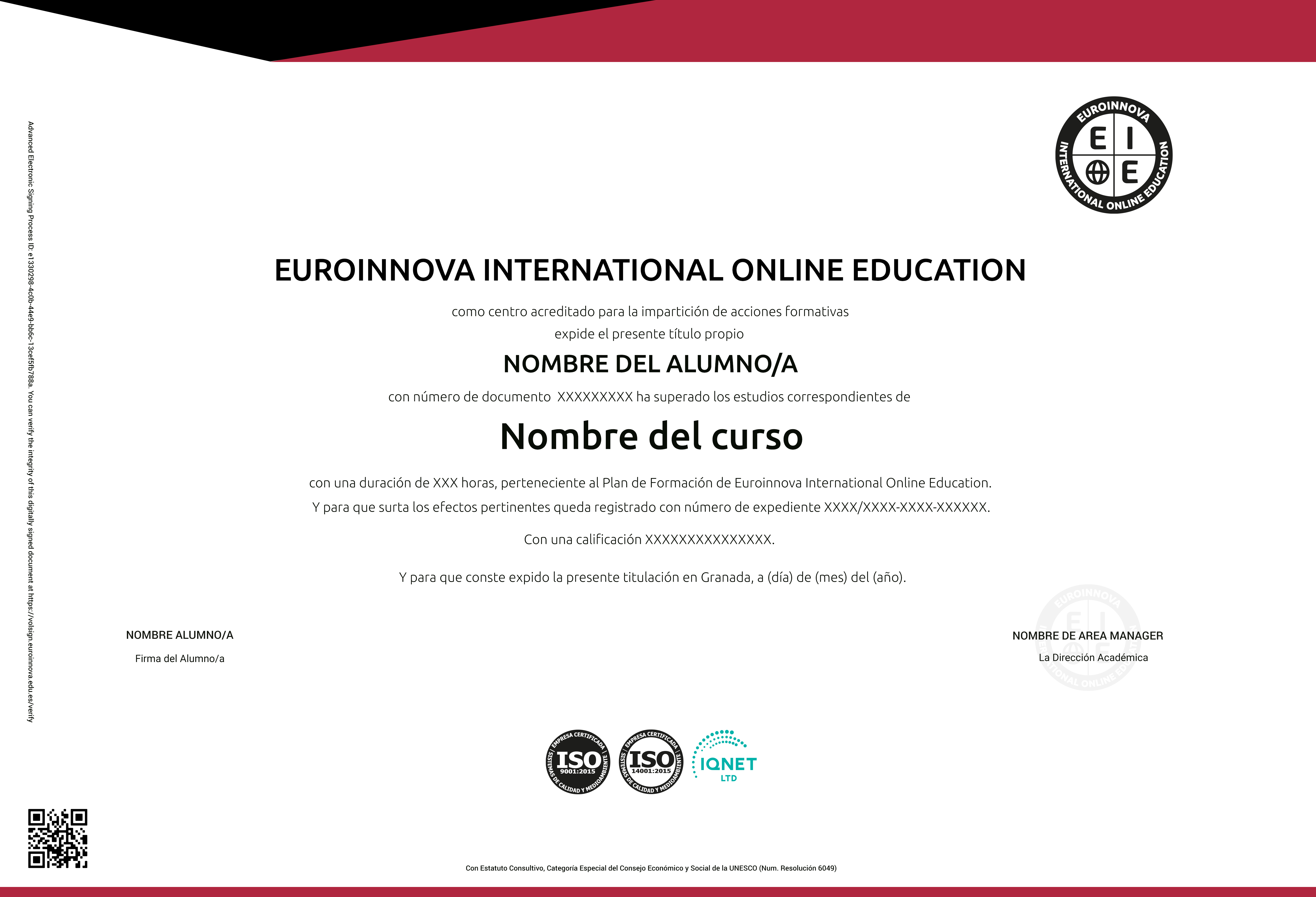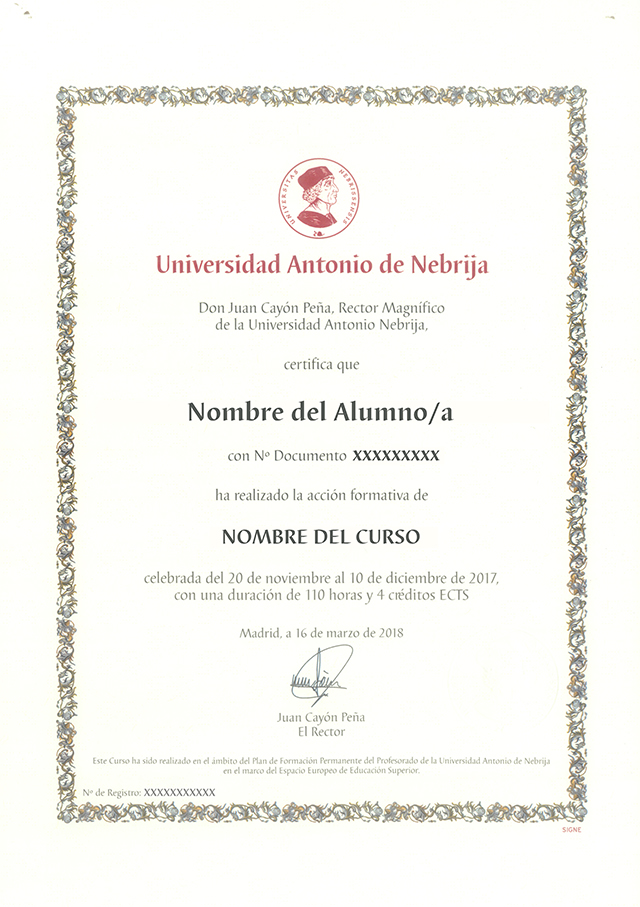Master of Director of Children's and Primary Schools + University Degree (5 ECTS credits)

Request information


Temario
Descargar temario en PDFPlan de estudios
Summary
This Master of Educational Centers offers you a specialized training in the field. To provide education, an establishment is necessary in which this activity can be exercised in the best possible way, handling the possible conflicts that may be experienced and giving quick solutions to the situations that require them. Carrying out this Master of Director of Children's and Primary schools will know the fundamental aspects about the direction of an educational center, covering topics such as organization, management systems, etc.
Goals
Professional exits
To prepare you
This Master of Educational Centers offers you a specialized training in the field. To provide education, an establishment is necessary in which this activity can be exercised in the best possible way, handling the possible conflicts that may be experienced and giving quick solutions to the situations that require them. Carrying out this Master of Director of Children's and Primary schools will know the fundamental aspects about the direction of an educational center, covering topics such as organization, management systems, etc.
Who is it addressed
The present Master Direction is aimed at all those who want to undertake a professional activity that allows them to manage primary schools.
Official character
This training is not included in the scope of official regulated training (Infant Education, Primary Education, Secondary Education, Official Professional Training FP, Baccalaureate, University Degree, Official University Master and PhD). It is therefore a complementary and/or specialization training, aimed at acquiring certain skills, skills or aptitudes of a professional nature, being able to be barely as merit in workbags and/or opposition competitions, always within the complementary training section and/or continuous training being always essential to review the specific requirements of the public labor stock of the public labor stock market.

Our methodology combines technology, pedagogy and empathy for a tailored learning.
You mark the rhythm, you decide the way and an artificial intelligence accompanies you to learn better, with meaning and purpose.

Realized personalized learning
Your style, interest and level define the route. You are the starting point.

Constructivism in action
Explore, experience and apply. Learning means understanding, not memorizing.

He who accompanies you, not who directs you
Phia, our artificial intelligence assistant guides you without limiting your autonomy.

Evaluation without pressure
Continuous and adaptive feedback. Because learning is a process, not a figure.
Certificación


Double degree: - Titling of Master of Director of Children's and Primary Colleges with 1500 hours issued by Euroinnova International Online Education, member of the AEEN (Spanish Association of Business Schools) and recognized with the academic excellence in online education by QS World University Rankings. - University degree of management and management of educational centers with 125 hours and 5 ECTS university credits. Scoring course as merits for access oppositions to the teaching public function in all CC. AA., According to R.D. 276/2007 of February 23 (BOE 2/3/2007). This is carried out within the permanent training plan of the Antonio de Nebrija University


EDUCAHUB Scholarships
Make your most accessible training: Finish 0% interest and get personalized scholarships.
In Eduahub we believe that education must be available to everyone. Therefore, we offer a scholarship plan that facilitates your access to practical, current and quality training, eliminating economic barriers.
-25%
Alumni Scholarship: For former students of Eduahub.
-20%
Unemployment scholarship: if you prove to be unemployed.
-20%
Numerous family scholarship: for families with 3 or more children.
-20%
Disability scholarship: For people with disabilities ≥33%.
-15%
Emprende Scholarship: For self -employed that accredit your activity.
-15%
Scholarship recommends: If you come recommended by an alumnus.
-15%
Group scholarship: For joint inscriptions of 3 or more people.

An entire educational universe, on a single platform.
An intuitive environment that guides you to form autonomously and with purpose.

Learn at your pace
Courses, masters and official degrees. 100% online, flexible and at your pace.

Access from anywhere
Available 24/7 on mobile, tablet or PC. You decide when and how to train.

Phia, your mentor ia
It challenges you, motivates you and customizes your path. Learn with a guide that evolves with you.

LX One Plus: Without limit formation
Unlock soft skills, languages and more. Advances towards integral and continuous formation.



